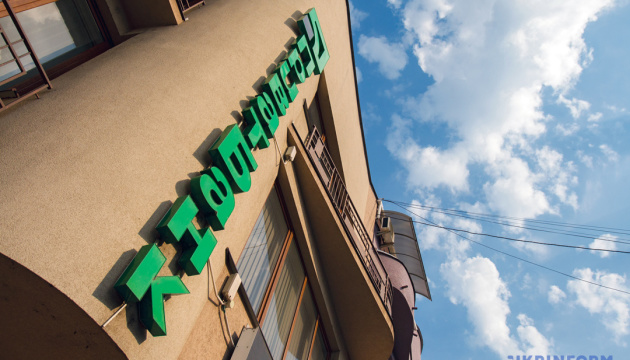
Atlantic Council: PrivatBank accuses prior owners of laundering $470 bln
“On May 21, the nationalized Ukrainian PrivatBank filed a remarkable civil case against its prior owners Ihor Kolomoisky and Gennady Bogolyubov in the state court of Delaware. The three co-defendants are US citizens in Miami and nineteen anonymous companies,” reads the article by Atlantic Council senior fellow Anders Aslund.
The defendants are accused “for hundreds of millions of dollars of damages arising in connection with claims for…unjust enrichment, for fraudulent transfer under state laws (including Delaware and Ohio), for violations of Ohio’s [Racketeer Influenced and Corrupt Organizations] statute, and for civil conspiracy” (p. 2).
As noted, the most striking statement is “From 2006 through December 2016, the total movement of funds (credits) into the [ultimate beneficiary owners’] laundering at PrivatBank Cyprus was $470 billion, which amounts to approximately double the Gross Domestic Product of Cyprus during the same period” (p. 77). If this is true, this is the biggest case of money laundering in history, and it has been perpetrated by one single group.
“This is a civil suit, so PrivatBank’s investigators have provided all the materials. All the accusations, however, are of a criminal nature. PrivatBank investigators have done extraordinary detective work, and this is probably the most detailed study of large-scale money laundering into the United States that runs 104 pages, though it has not been proven in court yet. This case shows how money laundering from Ukraine to the United States allegedly takes place,” reads the article.
As noted, Ihor Kolomoisky and Gennady Bogolyubov, both from Dnipro in eastern Ukraine, have been business partners since 1992. They established PrivatBank that accounted for one-fifth of Ukraine’s banking assets, but in December 2016 it was nationalized by the Ukrainian government, which alleged that the two co-owners had given 97 percent of its loans to themselves through various offshore companies, usually in Cyprus. The Ukrainian government took over the bank and recapitalized it with $5.5 billion.
Kolomoisky and Bogolyubov run a vast conglomerate, commonly called Privat Group, though legally no such group exists. It is a multitude of anonymous offshore companies, mainly based in Cyprus.
The ultimate beneficiary owners “used PrivatBank as their own personal piggy bank—ultimately stealing billions of dollars from PrivatBank and using United States entities to launder hundreds of millions of dollars’ worth or PrivatBank’s misappropriated loan proceeds into the United States to enrich themselves and their co-conspirators.” (p. 3).
According to Anders Aslund, the money trail is surprisingly simple. To begin with, the ultimate beneficiary owners collect retail deposits in Ukraine by offering good conditions and service. The money then flows to their subsidiary, PrivatBank Cyprus. In Cyprus, they benefit from the services of two local law firms.
According to the suit, the defendants purchased commercial real estate for millions of dollars in Cleveland and became the biggest owner of real estate there. It has been reported that the FBI investigated Kolomoisky’s business in Ohio for money laundering.
More remarkable is that Kolomoisky and Bogolyubov, according to the suit, purchased several ferroalloy companies in the United States, Felman Production Inc., in West Virginia; Felman Trading Inc. and Georgian Manganese, LLC; Warren Steel Holdings in Warren, Ohio; Steel Rolling Holdings Inc., Gibraltar, Michigan; CC Metals and Alloys, LLC, in Kentucky; Michigan Seamless Tubes, Michigan.
ol




